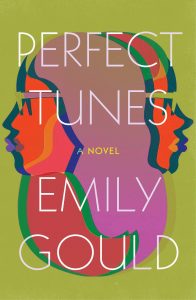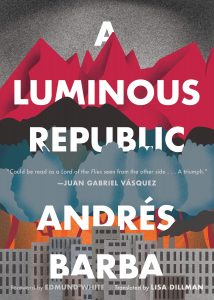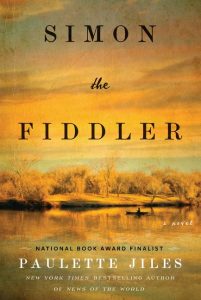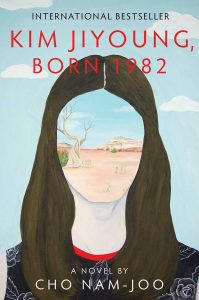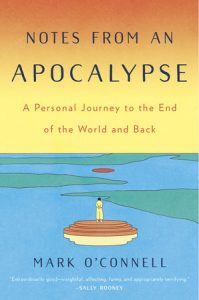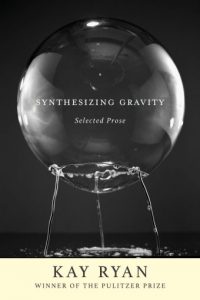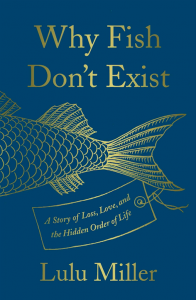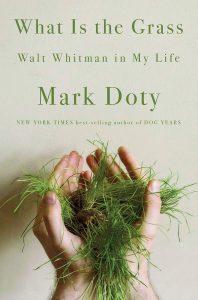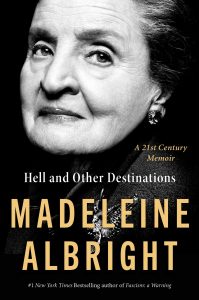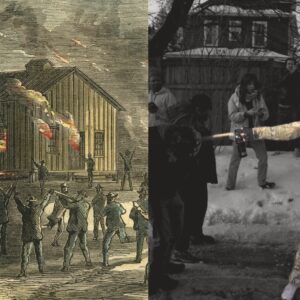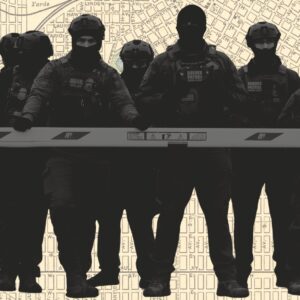
Here are 10 new books to keep you company this week.
My second favorite quarantine activity has become refreshing the bookshop.org page to see how much they’ve raised for local bookstores. (At the time that I’m writing this, they’ve crossed over the half a million line!) My first favorite quarantine activity is obviously reading all the new books that are still coming out every Tuesday (which you can order on bookshop.org). Allons-y! (My third favorite quarantine activity has been trying to appease the Duolingo Owl.)
*
Emily Gould, Perfect Tunes
(Avid Reader Press)
Emily Gould is a delight on Twitter, and I need you to know how rarely I bestow that compliment. Perfect Tunes, her second novel, which tells the story of a friendship, a tumultuous love affair, and motherhood, is just the right balance of acerbic and warm. The novel follows a young songwriter and musician in early-aughts New York, so bonus points for music scene and jeans nostalgia.
–Jessie Gaynor, Social Media Editor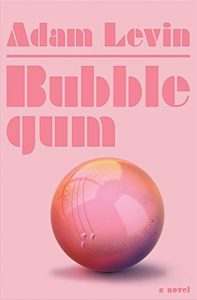
Adam Levin, Bubblegum
(Doubleday)
The latest novel from the author of the delightful (and enormous) The Instructions is, well, also enormous, at 784 pages, and looks to be pretty delightful too: it is the fictional memoir of a young man living in a fictional present, one in which the internet was never invented, and instead humankind put all its attention on Botimals, aka “cures,” tiny robotic pets. George Saunders called it “a dazzling accomplishment of wit and inventiveness—an irrepressible and insanely entertaining examination of our obsessive culture that doesn’t forget to be fond of that which it is satirizing.” Also, I heard the cover actually smells like bubblegum.
–Emily Temple, Lit Hub Senior Editor
Andrés Barba, tr. by Lisa Dillman, A Luminous Republic
(Mariner)
When I was first starting this job, one of the first things my colleague Emily Temple said to me was that I had to read Andrés Barba’s Such Small Hands, an eerie gem of a novel about a little girl whose parents die in a tragic car crash and the sinister games she plays with the other girls at the orphanage. It’s one of the best things I’ve ever read. Lisa Dillman works wonders with her translation; the language is particularly haunting and memorable. So, Andrés Barba’s new novel, A Luminous Republic is sure to be just as brilliant. This one is about a group of feral children that arrive in a city in Argentina and the havoc they wreak, disrupting daily life and coaxing the other children to join them. If you love stories about creepy children, you’ll want to add this to the top of your TBR pile.
–Katie Yee, Book Marks Assistant Editor
Paulette Jiles, Simon the Fiddler
(William Morrow)
Jiles’ most recent novel, 2016’s thoroughly delightful News of the World, was one of my favorite works of fiction of the last ten years (seriously, you should all read it before the Tom Hanks movie adaptation is released later this year) so I shall most assuredly be picking up a copy of her new one, in which the author returns to her old stomping ground of 19th-century Texas. Set during the dying days of the Civil War, Simon the Fiddler is the story of a vagabond fiddle player, his rag-tag coterie of army musicians, and the Irish servant girl who steals his heart.
–Dan Sheehan, Book Marks Editor
Cho Nam-Joo, tr. by Jamie Chang, Kim Jiyoung, Born 1982
(Liveright)
This feminist novel became a runaway bestseller when it was first published in South Korea in 2016, selling over 270,000 copies in 10 months and over a million copies by 2018—the first Korean novel to do so since 2009. Even President Moon Jae-in read it. What’s exceptional about this book is how unexceptional its main character is: she is living the typical life of a Korean woman. It’s a testimony of subtle hardship and everyday discrimination. You’ll probably see something you recognize in there too.
–Emily Temple, Lit Hub Senior Editor
Mark O’Connell, Notes From an Apocalypse
(Doubleday)
As any thoughtful observer should have realized by now, the apocalypse—the real one, climate collapse—is no longer a story we tell of the future: it is happening now, all over the world, from the bushfires of New South Wales to the sinking islands of the South Pacific to the no longer perma-frost of the Siberian taiga. Mark O’Connell is one such thoughtful observer, and takes his wry Dubliner’s sensibility on a grand tour through a grifters’ gallery of End Times hustlers and Doomsday fantasists, from the Mars Society meetings of Southern California to the sleek Silicon Valley bolt-holes of New Zealand. O’Connell is an ideal skeptic-by-proxy for such a tour, suspicious of his own sentimentality, yet not given to the death-by-statistics approach of so many recently heralded books. These are notes worth keeping.
–Jonny Diamond, Lit Hub Editor in Chief
Kay Ryan, Synthesizing Gravity
(Grove Press)
It should not surprise, given the jeweled perfection of her great poetry, that Kay Ryan can create some damn fine prose when she wanted to, too. This book, assembled with the help of the poet Christian Wiman, collects the best of it, to borrow the title of her Pulitzer Prize-winning collection. What a wonderful voice she displays, writing on everything from Robert Frost and Marianne Moore to the value of emptiness and loneliness. Ryan has always kept her own counsel as a poet. She perfected her game by staying out of the poetry game, and you see the effect here on her voice. She’s a kind of wisecracking philosopher, a truly original thinker, a quantum physicists of space who also, clearly, knows how her own clear voice sounds better than when alone.
–John Freeman, Lit Hub Executive Editor
Lulu Miller, Why Fish Don’t Exist
(Simon & Schuster)
From the host of NPR’s Invisibilia, this debut book tells the story of a scientist named David Starr Jordan who set out to discover as many of the world’s fish as he could, building one of the most important specimen collections ever. But in 1906, the San Francisco earthquake hit, sending over a thousand of his fish, housed in fragile glass jars, crashing to the floor. As Jordan painstakingly remade his collection, he introduced an innovation that, he believed, would protect it against the chaos of the world. Miller blends science and biography to investigate the age-old question of how to go on when everything seems lost.
–Emily Firetog, Lit Hub Deputy Editor
Mark Doty, What Is the Grass
(W. W. Norton)
For the past decade, Mark Doty has been writing essays about the cone of light Walt Whitman shone into his life. This beacon illuminated and altered all, from Doty’s attitude toward men and desire to the way he thinks about toward riches. At last he has woven these meditations together into a single book, forming one strong narrative of biography, criticism and memoir-driven rediscovery. Doty puts on a clinic in how to read closely but expansively, going back to Whitman’s greatest poems, bouncing them off incidents in his own life, but also the work of his contemporaries. One of the most fascinating sections of the book compares Stoker and Whitman, two fellow feral souls howling at the moon in the 19th century. This is shining proof that criticism can make you want to hold it close.
–John Freeman, Lit Hub Executive Editor
Madeleine Albright, Hell and Other Destinations
(Harper)
In a time when the state department seems to be run without design or order, and strategic thinking has been exchanged for outright corruption, Albright’s upcoming memoir can be forgiven its alarming title. America made a lot of the accelerant in many parts of the world on fire today, and we lit the matches, too, sometimes. Still, what could an enlightened use of power do in these times to prevent us from an outright hellish inferno? Why is Albright so determined to keep working for it? It’s been almost 20 years since she left office, and Albright has been busier than most current secretaries of state, writing books (she’s been a NYT bestseller six times), working in an investment capacity, speaking, teaching and joisting with prime ministers and nitwits. Chronicling her late life multi-job reinvention, Hell and Other Destinations will surely make many long for a moment when those leading diplomacy at least thought, read, or even listened to others.
–John Freeman, Lit Hub Executive Editor
Katie Yee
Katie Yee is a Brooklyn-based writer.









